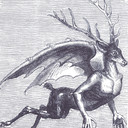-
 Matt Stalcup
posted in technical issues • read more
Matt Stalcup
posted in technical issues • read more@alexandros thanks for replying! I am using [table], not [array]. I've experimented with hiding the tables in subpatches to get around the drawing CPU issue, but still had pops when the tables were hidden. This is an interesting question, though, because my CPU usage never really spiked any further than around 10% when playing with this-- are the issues with tables being redrawn a CPU draw issue or is it that the table's data set actually changes more slowly when they are graphically redrawn?
Unfortunately, I have edited the patch fairly intensely to implement my workaround- and the patch was complicated to look at to begin with. I did some testing in a more simple environment, but was still getting this issue. I'll throw together something soon to demonstrate what I'm talking about because I'd really like to understand what's going on.
-
 Matt Stalcup
posted in technical issues • read more
Matt Stalcup
posted in technical issues • read moreI have made a workaround basically by fading between an inactive and active table. It's good enough for my purposes but it feels like I ought to be able to do this more elegantly.
-
 Matt Stalcup
posted in technical issues • read more
Matt Stalcup
posted in technical issues • read moreIn Pd's help files, it suggests table switching with [tabosc4~] to avoid rewriting tables. However, when I do this, I get small pops in my audio upon switching. I assume these are from the tables switching when the values are far apart, causing the signal to suddenly jump.
Is there a way to make the table switch happen when the index of the table is at 0 where both tables have the same value (i.e. 0?)
-
 Matt Stalcup
posted in technical issues • read more
Matt Stalcup
posted in technical issues • read more@oid, hey!
Sorry, life got busy and I stepped away from this damnable hobby for a while. Just wanted to say that, yes, I'm using Purr-Data. The version in the AUR must not be totally updated. Anyway, I have so many issues already with keeping all my packages up to date and in sync that it's not worth it to me to do an install outside the AUR.
Thanks a bunch for both your help (and you as well @whale-av. I've been able to figure out how to handle [text] sufficiently for my purposes.
-
 Matt Stalcup
posted in technical issues • read more
Matt Stalcup
posted in technical issues • read more@whale-av, @oid, thanks for the pointers. I'll dig into this soon.
Although I'm not sure why my install of PD is outdated. I've got the most recent version through AUR. Is AUR not updated?
-
 Matt Stalcup
posted in technical issues • read more
Matt Stalcup
posted in technical issues • read moreHi, I'm just trying to figure out how to work with this object and the help file is really confusing to me
Firstly- can any kind soul point me toward a better resource for understanding how to use this object?
Secondly, I'm going to point out a few of my confusions with the help file, specifically in [text define]:
- "text define" maintains a text object and can name it so that other objects can find it (and later should have some, alternative, anonymous way to be found)."
-
- What does that second half mean? An "anonymous way to be found" sounds like an oxymoron to me.
- When i click the message box [write text-object-help.txt] that is connected to [text define -k text-help-1], I get an error in the console that reads "text-object-help.txt: write failed"
-
- Why should something in a help file fail like this? There's nothing apparent in the help file to explain the error. I'm running realtime Purr-Data on Manjaro's latest realtime kernel, everything is updated.
- Next to the message box [sort], there's just a comment that reads "comment"
-
- lol what?
- It seems like [text define] creates the text file with its third argument (e.g., [text define -k file-name-here]" However, the help patch is reading from a file called "text-object-help.txt" and when the file is opened, "text-help-1" is on the top of the window.
-
- Dear god, what is going on?
If anyone feels like helping me out here, I would gladly help put together a better help patch. Or maybe I'm just reading this totally incorrectly.
Thanks continually for all of your support, everyone!
-
-
 Matt Stalcup
posted in technical issues • read more
Matt Stalcup
posted in technical issues • read moreI've whipped up a little abstraction for this purpose. Posted to the abstraction section here.
-
 Matt Stalcup
posted in abstract~ • read more
Matt Stalcup
posted in abstract~ • read moreBased on the discussion here, I've made a small abstraction that checks for a threshhold of # of connections to its inlet and returns 0 or 1 based on whether or not that threshhold is met.
It's pretty simple but if you need it, it's here!
-
 Matt Stalcup
posted in technical issues • read more
Matt Stalcup
posted in technical issues • read moreThanks @alexandros and @FFW, this is just what I needed! Seems like running a [metro 1] through a message to [canvasconnections] is even pretty inexpensive, so it's not hard to have this actively turn that spigot on and off depending on if a connection is made. Now to make this work constantly across a variable number of inlets!
